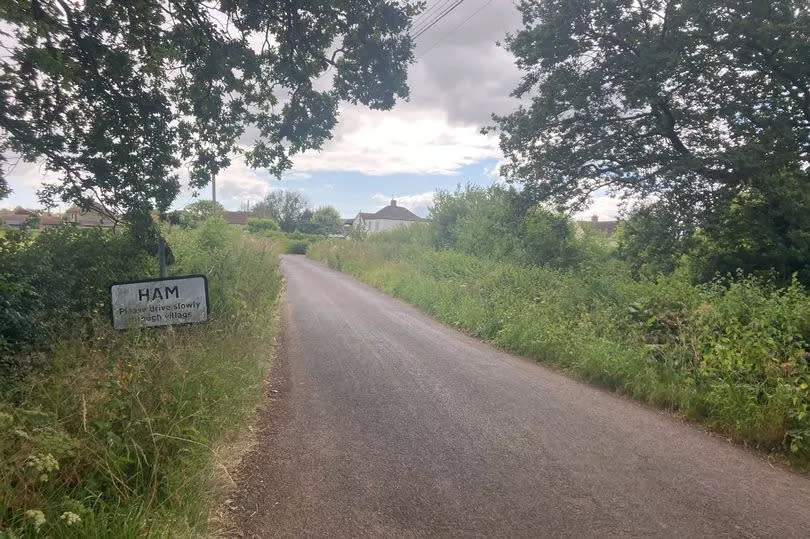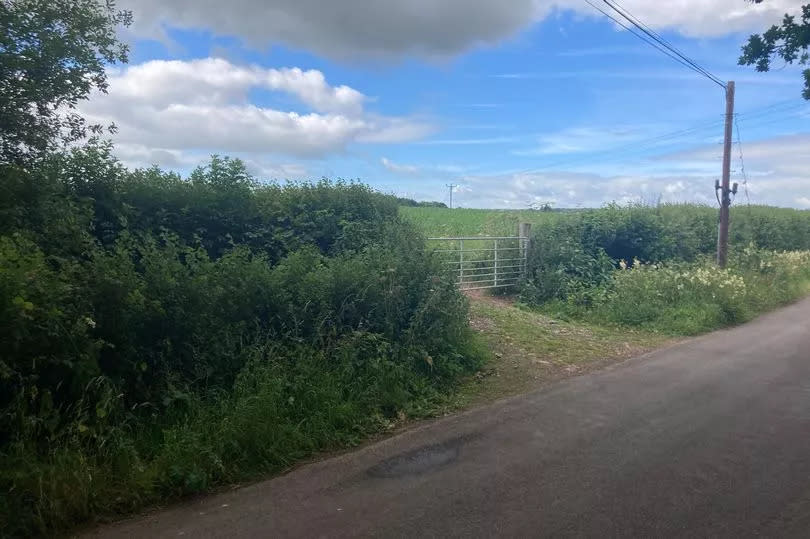Large new solar farm will be built near Taunton

A large new solar farm will be built on fertile farmland near Taunton despite fears that it will worsen localised flooding. Novus Renewable Solutions applied to build a 30-hectare (74-acre) solar farm on agricultural land on White Street in the small hamlet of Ham, east of Creech St. Michael.
Local residents and environmental campaigners objected vociferously to the plans, arguing the proposal was not the best use for local farmland and could lead to more flooding within the River Tone catchment area. But Somerset Council's planning committee west narrowly voted to back the plans, arguing each new solar array had to be judged on its own merits.
The site lies between White Street and the Taunton waste water treatment works operated by Wessex Water, a few hundred years from the River Tone. Once completed, the solar farm will produce around 22MW of electricity - enough to power more than 5,500 homes - for a period of up to 40 years (though this could be extended).
READ MORE: Riverside footpath in Taunton town centre could soon be reopened
READ MORE: Somerset planning: New lounge at Taunton railway station among new schemes
The Mumbai-based company has argued that the proposal will lead to an increase in biodiversity, with sheep also being allowed to graze on the land during the farm's operational life. But Fletcher Robinson, a trustee of CPRE Somerset, took a very different view when the council's planning committee west met in Taunton on Tuesday afternoon (June 25).
He told the committee: "The Tone river valley at Creech St. Michael is one of the most beautiful and iconic landscapes in Somerset. We would be shooting ourselves in the foot if it were to be blighted by 70 acres of glass, metal and plastic.
"We have to strike a reasonable balance about where such installations go. If a landscape as intrinsically beautiful as this one can be used for this purpose, we might as well throw in the towel and agree to the entirety of area west being covered in panels.
"Due to the topography and proximity of footpaths, including the famous drove road along the river, the scheme cannot be adequately screened with additional planting, and therefore this is an unacceptable location. You recently refused an equally large solar farm on Nythe Road at Pedwell Hill precisely on the grounds that it is a valued landscape, and also uses best and most versatile (BMV) agricultural land."
Recent solar farm plans in Somerset have had a mixed record in securing planning permission - though the majority of larger schemes have been given the go-ahead. While permission for the Nythe Road site on the Somerset Levels was refused, the council approved Novus' plans for a similar solar farm off the B3227 Wiveliscombe Road in Preston Bowyer in January, and recently lost an appeal over a further solar farm on the eastern edge of Washford.

William Morris, co-founder of the neighbouring One Tree Farm, said that allowing solar farms on agricultural land would be deeply counter-productive to the UK's food security. He said: "The land is proving to be highly fertile as well as being home to an abundance of wildlife.
"We want to ensure the land can sustain us and future generations - this is crucial to combatting the climate crisis. We hold weekly sessions for families to visit the farm and have introduced hundreds of children to low-intensity agriculture, inspiring the next generation.
"Government policy states developers should prioritise brownfield sites and industrial land over agricultural sites." Robin Huish, chairman of the Ham Flood Defence Committee, said: "I’ve lived here for 20 years. Ham is a bowl surrounded by flood defences - at a time of heavy water, pumps keep the water out.

"If the quantity or speed of the water entering Ham increases, our pumps may not be able to cope. This has happened twice in the last three years - climate change is increasing the frequency and ferocity of these events."
Councillor David Fothergill (whose Monkton and North Curry division includes the site) added that the area was still susceptible to flooding despite the Environment Agency spending £600,000 on upgrading local defences. He said: "Flooding would make access to this site impassable.
"In a county where flooding is most likely, we do not have a policy on building solar farms in flood-prone areas." Councillor Rosemary Woods (whose Watchet and Stogursey division includes the Washford solar farm site) said: "This debate doesn’t change my mind about prime agricultural land not being the place for solar panels.
"Why don’t we encourage house-builders to put them on their new homes?" Councillor Andrew Hadley (Minehead) agreed: "More than 20 hectares of BMV land is going to be covered over for the next 40 years - I have a problem with 40 years being considered 'temporary’.
"Water and electricity don’t mix, and if there is a problem with Ham, how do the emergency services get in there." Councillor Caroline Ellis (Bishop's Hull and Taunton West) disagreed, arguing that a lack of clear government policy on solar farms (until a recent written ministerial statement) had tied the council's hands.
She said: "We look at different solar panel farm proposals and we look at them on their individual merits. We desperately need more renewable energy in this country.

"I would rather we didn’t have to do this on greenfield sites at all, but we’ve been left no choice by central government, who could have legislated that all new-build houses have solar panels on - but they didn’t do that. The future of agriculture in this country relies on a dramatic reduction in the use of land for animal agriculture.
"You can still farm this land and still produce food in a much more beneficial way." After around 90 minutes' debate, the committee voted to approve the plans by five votes to three, with one abstention.

 Yahoo News
Yahoo News 
